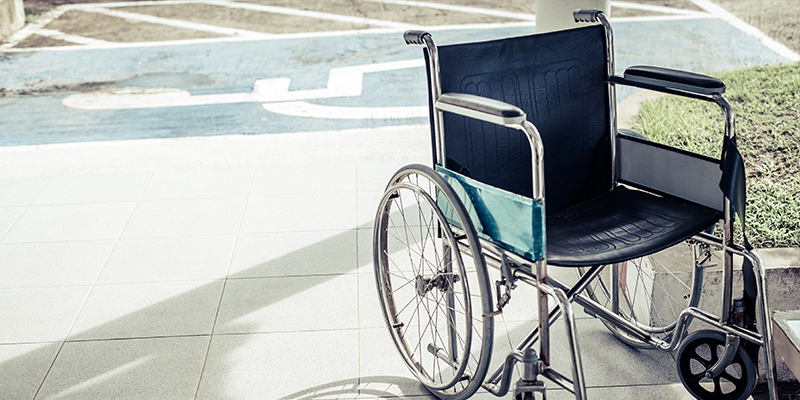When you’ve suffered an injury that wasn’t your fault, pursuing compensation is often the last thing on your mind. But as the impact on your daily life grows — from time off work to additional care needs or travel for treatment — understanding the personal injury claims process becomes increasingly important. One of the most common questions people ask is: “How long does a personal injury claim take to settle?”
The honest answer is that there’s no one-size-fits-all timeline. Each claim is unique and influenced by various factors that can either speed up or extend the settlement process. While this uncertainty can be frustrating, understanding what affects claim duration can help you set realistic expectations and make informed decisions about your case.
How Long Does a Personal Injury Claim Take?
A typical personal injury claim will take between 12-18 months to settle on average. This means that a straightforward case, with clear liability and relatively minor injuries can be resolved within six months, whereas for complex cases involving serious injury or disputed responsibility you could be looking at potentially several years before a resolution is found.
Generally, the timeframe will depend on the actual circumstances of the accident, the severity of your injuries, and how quickly the other party accepts responsibility (if they are willing to do so at all). It is also worth noting that the type of claim will also have an impact on how long an accident claim takes to conclude. For example, a road traffic collision or workplace incident will generally take less time than a complex personal injury claim involving multiple parties or extensive medical treatment.
How Long After an Accident Can You File a Claim?
Time limits for personal injury claims are strictly enforced, encouraging victims to act as quickly as possible so as to not miss out. In most cases, you have three years from the date you were first aware of your injuries to begin legal proceedings. This is known as the limitation period.
While three years may seem to be a long time, it’s recommended that you begin your claim as soon as possible. Early action ensures:
- Both parties’ recollection of events remains as fresh as possible.
- Evidence will be more readily available.
- Witnesses can be contacted while their memories are clear on what happened.
- Medical records are readily accessible.
It is always recommended to seek legal advice as promptly as possible if you wish to better understand your situation and what you can expect.
Limitation for Personal Injury Claims
The three-year limitation period is strictly enforced, with very few exceptions. Courts will only consider extending this deadline in exceptional circumstances, including:
- Claims Involving Children: The three-year limit begins on their 18th birthday, not from the date of the accident.
- Individuals Lacking Capacity: For example, somebody who has suffered a serious brain injury may not be subject to the time limit until mental capacity is regained.
- Delayed Awareness: If a person, for example, is exposed to a harmful substance but only develops the symptoms years later, the clock will start from when they actually became aware of the link.
- Other Exceptional Cases: In rare cases, courts may allow extensions if strictly enforcing the time limit would lead to a clearly unjust outcome. Examples of this could include:
- When the injured party is misled about their rights or the cause of their injury.
- Where procedural error or solicitor negligence causes avoidable delays.
- Where the claimant suffered severe illness, mental trauma, or had a lack of immediate access to legal advice.
Despite this, it’s important to not rely on a potential extension — if you or a loved one have been in an accident, it’s vital that legal advice is sought as soon as possible after the accident.
What Factors Influence How Long an Accident Claim Takes?
Understanding the key factors that can affect how long an accident claim takes can help you to anticipate potential delays — and work with your legal representative to minimise them wherever possible.
Some factors that affect claim duration include:
The Nature and Severity of Your Injuries
The most significant factor affecting how long a personal injury claim takes to settle is the nature of your injuries. Most personal injury claims don’t settle until you’ve either fully recovered, or have reached what medical professionals often call “maximum medical improvement” — the point whereby your condition has stabilised and you have recovered to the maximum.
For minor injuries requiring only basic treatment, this process may take only a matter of months. However, for serious injuries requiring extensive rehabilitation periods, significant or multiple surgeries, and/or ongoing care, this timeline can significantly extend.
Additionally, in cases where full recovery is not possible, your solicitor will require comprehensive medical reports in order to establish a long-term prognosis, and to ensure that your compensation can cover all ongoing care needs moving forwards.
Liability and Fault Determination
The speed in which the other party is willing to accept responsibility will also dramatically impact the timelines of your claim. When liability is admitted early in the process, your case is able to progress at a much faster pace.
However, if the other party does deny responsibility, or even argues that you were the party at fault, extensive investigations become necessary — extending how long the personal injury claim takes to settle.
In order to build the most compelling case possible, your solicitor will likely look to gather key evidence. This will include:
- Witness statements.
- CCTV footage.
- Police reports.
- Opinions of specialists.
This investigation process can add months to your claim, but it’s essential for securing fair compensation.
The Claims Process and Legal Protocols
The actual formal claims process has a built-in timeframe that will help determine the overall duration. Once your claim has been submitted, the other party must acknowledge receipt within 21 days and has up to three months to investigate and decide whether to admit responsibility or deny it.
For low-value claims, the Ministry of Justice operates different portals with streamlined timelines. The Official Injury Claim (OIC) portal handles road traffic accident claims under £5,000, where defendants must respond within 30 days. The traditional Claims Portal processes other personal injury claims up to £25,000, with response times varying from 15 working days for road traffic claims to 40 working days for public liability claims. If defendants fail to respond within these timeframes, the claim may fall out fo the process, resulting in higher costs for the defendant.
For high-value claims, the Personal Injury Pre-action protocol requires a formal Letter of Claim, or Letter of Action. In this circumstance, the defendant has up to three months to respond with their position regarding the liability.
Medical Evidence and Expert Reports
Obtaining comprehensive medical evidence is crucial to proving the injuries are as severe as claimed, but it is also time-consuming. You will need independent medical reports that:
- Assess your injuries.
- Confirm the cause of these injuries.
- Provides a prognosis for recovery.
For more complex cases involving multiple serious injuries, several expert reports may be required. Organising these appointments with medical specialists and then waiting for the reports afterwards can add weeks or months to a claim.
How Long Does a Compensation Claim Take if It Goes to Court?
While most personal injury claims will settle out of court, litigation becomes necessary when a reasonable settlement cannot be reached amicably through negotiation. Court proceedings will significantly extend the expected timeline. It has the potential to add up to 18 months – two years onto the process
The litigation process involves a number of steps and moving parts, including:
- Issuing formal court proceedings.
- Disclosure of documents by both parties.
- Exchanging witness statements.
- Updated medical evidence.
- Potential trial (should a settlement not be reached).
How Many Personal Injury Claims Go to Court?
It’s worth mentioning that the vast majority of personal injury claims do settle without ever reaching court. Industry estimates suggest that fewer than 5% of all personal injury claims are believed to proceed to trial — with most other cases being settled through negotiation before court proceedings.
This high settlement rate occurs because:
- Litigation is often expensive and time-consuming for both parties.
- Court outcomes can be uncertain.
- Insurance companies prefer predictable settlement costs.
- Negotiation allows for more flexible solutions.
Your solicitor will always attempt to negotiate a fair settlement before considering litigation and will only recommend court proceedings when it’s in your best interests.
Personal Injury: What Can I Claim For?
Personal injury compensation typically covers:
- General Damages: Compensation for pain, suffering, and loss of amenity caused by your injuries. The amount received will depend on the severity of your injuries and duration of recovery.
- Special Damages: Financial losses and expenses including:
- Loss of earnings (past and future).
- Medical expenses and treatment costs.
- Care and assistance costs.
- Travel expenses for medical appointments.
- Property damage.
- Miscellaneous out-of-pocket expenses.
- Future Losses: For serious injuries, compensation may include future loss of earnings, ongoing care costs, and accommodation adaptations.
Each element requires careful documentation and expert assessment, contributing to the overall timeline. Understanding what you can claim for helps to provide additional context as to why valuations take time, and why comprehensive evidence is so necessary.
Managing Expectations and Interim Payments
While waiting for your claim to settle, financial pressures may mount, particularly if your injury has affected your capacity to earn. Fortunately, interim payments may be available to help manage immediate needs.
Interim payments are partial payments made during the claims process and are typically only available if:
- The other party is willing to admit liability.
- You have urgent financial needs that cannot be covered.
- The court orders for interim payments to be made.
Interim payments can be used to cover lost earnings, medical expenses, and care costs, providing much-needed financial relief while your claim progresses.
Getting Your Claim Moving
There are some steps you can implement to help expedite your personal injury claim, enabling you to get on with your life quicker. This includes:
- Experienced Solicitor: A specialist personal injury solicitor will understand the process and what you are going through. They can navigate any hurdles or potential delays efficiently and effectively.
- Open Communication: Always maintain communication with your solicitor. Keep them informed if there are any changes in your condition or circumstances.
- Prompt Response: When your solicitor requests documents or information from you, make sure you respond promptly in order to keep your case moving forward.
- Be Realistic: While you absolutely deserve fair compensation, setting unrealistic standards and demands will often prolong negotiations unnecessarily.
The Importance of Not Rushing Your Claim
Something to always remember is the finality of a personal injury settlement. If you accept compensation from the other party, it’s expected that this money is paid as a “full and final” financial settlement. This means that you are unable to make additional claims for the same incident in future.
As a result, rushing your claim before fully understanding the long-term impact of your injuries could leave you significantly under-compensated. For example, if your condition were to worsen after receiving a settlement, you have no immediate recourse for additional compensation. This is why experienced solicitors will often recommend that you wait for your condition to at least stabilise before finalising settlement negotiations.
Taking the Next Steps in Your Personal Injury Claim
While the question “how long does a personal injury claim take?” has no definitive answer, understanding the factors that influence timing helps set realistic expectations. Most claims settle within 12-18 months, but your specific circumstances will determine your timeline.
The key is working with an experienced personal injury solicitor who can guide you through the process efficiently while ensuring you receive fair compensation. Remember, while a quick settlement might seem appealing, taking time to properly value your claim and understand your long-term needs will often result in much better outcomes.
If you’re considering a personal injury claim, don’t let concerns about timing prevent you from seeking the compensation you deserve. Contact our experienced team today for a free consultation to discuss your case and understand what timeline might apply to your specific situation.
For more information or support with a personal injury claim, the expert team at WHN Solicitors is here to help. Contact Katie Wright on 01200 408303 or email: katie.wright@whnsolicitors.co.uk to find out more.
Disclaimer: This article is for informational purposes only and does not constitute legal advice. For guidance tailored to your specific circumstances, please contact our family law team to arrange a consultation.



















